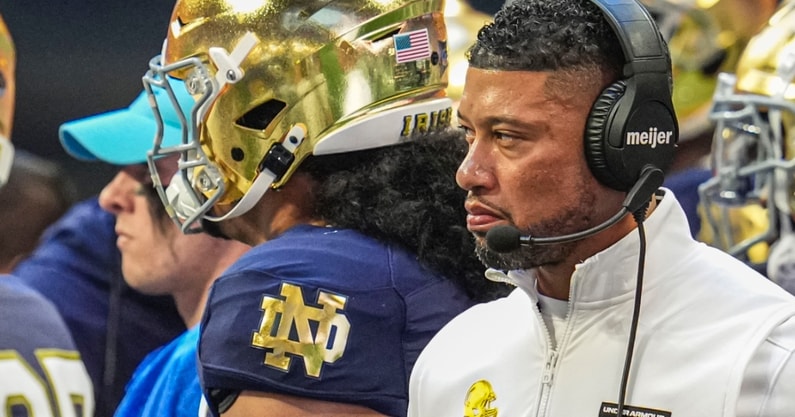
Elijah Pritchett, a highly-touted 5-star offensive tackle, has made headlines by announcing his decision to transfer from Alabama to a rising program in the Big Ten. This move has sparked significant interest in the college football world, as Pritchett was one of the top recruits in his class, and his transfer could have substantial implications for both programs involved.
A Surprising Departure
Pritchett’s departure from Alabama has come as a surprise to many. Known for its dominant football program and a proven track record of producing NFL talent, Alabama has been a magnet for top-tier recruits like Pritchett. His decision to leave such a successful program highlights a shift in the college football landscape, where players are increasingly looking for opportunities that best fit their personal and athletic goals.
Pritchett’s time at Alabama was marked by intense competition for playing time on an already stacked offensive line. While he showed promise, the opportunity to become a more central figure in an emerging Big Ten program likely influenced his decision.
The Move to the Big Ten
The destination for Pritchett’s transfer is a Big Ten program that has been making waves in recent years, steadily climbing the ranks to become a formidable competitor in the conference. This program, known for its emphasis on developing linemen, presents Pritchett with the chance to take on a leading role and showcase his skills on a bigger stage.
The Big Ten’s reputation for producing dominant offensive linemen and its increasingly competitive nature make it an attractive destination for a player like Pritchett. His addition to the roster is expected to provide a significant boost to the team’s offensive line, which could be a game-changer for their future prospects.
What Pritchett Brings to the Table
Elijah Pritchett stands out for his impressive combination of size, strength, and athleticism. At 6-foot-6 and over 300 pounds, he possesses the physical tools necessary to excel at the collegiate level and beyond. His quick footwork, powerful blocking, and ability to protect the quarterback make him a valuable asset to any offensive line.
Pritchett’s experience at Alabama, even in a limited role, has equipped him with the discipline and knowledge required to succeed at the highest levels of college football. His transfer to a program with rising aspirations in the Big Ten offers him a platform to become a key player and further develop his skills in a competitive environment.
Implications for Both Programs
For Alabama, the loss of Pritchett is notable, but it’s unlikely to disrupt the program’s momentum significantly. The Crimson Tide remains a powerhouse with a deep talent pool, but Pritchett’s departure serves as a reminder of the challenges even top programs face in retaining their top talent.
For the Big Ten program acquiring Pritchett, this move represents a major coup. Gaining a player of his caliber signals the program’s growth and its ability to attract top talent. Pritchett’s presence is expected to elevate the team’s performance, particularly in protecting the quarterback and establishing a strong run game.
Conclusion: A Strategic Move
Elijah Pritchett’s transfer from Alabama to a rising Big Ten program underscores the dynamic nature of college football today. Players are increasingly making strategic moves that align with their personal development and career aspirations. For Pritchett, the decision to join an emerging powerhouse in the Big Ten is an opportunity to step into a more prominent role and help shape the future success of his new team. As both programs adjust to this change, all eyes will be on how Pritchett’s transfer impacts the upcoming season and beyond.






